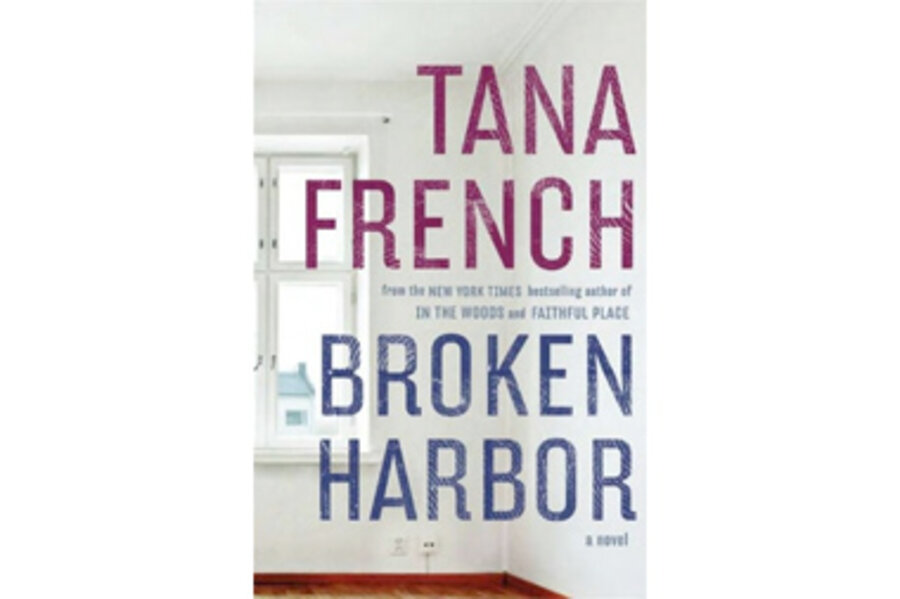Mick "Scorcher" Kennedy was one of the most unappealing characters in Edgar Award-winning Tana French's third novel, “Faithful Place.” Naturally, the Irish writer made him the hero of her fourth.
Unlike traditional series, each Dublin Murder Squad novel features a new narrator, with a case tailor-made to play darkly on his or her neuroses.
“Let's get one thing straight: I was the perfect man for this case,” the by-the-book detective announces at the opening of the case that will dismantle several officers' careers. He's right, but not in the way he thinks.
A family of four has been viciously attacked in Broken Harbor, where Kennedy spent vacations as a child. Now the view of the Irish Sea has been fouled by a half-built development, Brianstown, left to rot before it was even completed.
But the killer made one mistake: The mom, Jenny Spain, is still alive – much to Kennedy's consternation, who has trouble coping with live victims.
“Dead victims don't show up crying outside HQ to beg for answers, you never have to nudge them into reliving every hideous moment, and you never have to worry about what it'll do to their lives if you [mess] up,” said Kennedy, who is famous in the department for his coldness. “They stay put in the morgue, light-years beyond anything I can do right or wrong. ...”
There are no signs of forced entry, and Kennedy and his rookie partner, Richie Curran, are trying to figure out if the stress of losing his job caused Patrick Spain to snap and slaughter his family, or if this is what Kennedy considers the rarest of all cases: one with truly innocent victims.
When Curran tries to argue that sometimes bad things just happen to people, Kennedy snaps: “You can't believe that. Whether it's true or not. You have to believe that somewhere along the way, somehow, most people get what they deserve.… Or else how do you get up in the morning? Believing in cause and effect isn't a luxury. It's an essential, like calcium or iron: you can go without it for a while, but in the end you'll start eating yourself up from the inside.”
Kennedy is a proud control freak. It is, he tells Curran, vital to his track record as having the highest solve rate in the department. But that vaunted sense of control begins to crack as the Spain case unspools.
Jenny and Pat had been childhood sweethearts, the envy of all their friends, and the ones that did everything right. Their children were adored; 13 years into their marriage, they still seemed very much in love. Their dream home, the one they had saved for years for, is lovingly decorated and immaculately tended – except for the holes in the walls, the chicken wire over the attic hatch, and the baby monitors and video cameras everywhere.
Curran, who apparently has watched a lot of “Dateline,” has no problem seeing Pat as the perpetrator; Kennedy, however, might be over-identifying a tad with the dead man, who tried so hard to get everything right.
French, like Flynn, examines the societal fallout from the global recession without the social commentary ever getting in the way of the mystery. Ireland – lauded as one of Europe's biggest success stories in the 1990s – fell as fast as it rose, and the Celtic Tiger landed flat on a lot of people's dreams.
When Curran remarks that neighborhood children will call the Spains' house haunted, he earns another reprimand: “'I don't believe in ghosts,' I said. 'And neither do you, not while you're on the job, anyway.' I didn't tell him: the ghosts I believe in weren't trapped in the Spains' bloodstains. They thronged the whole estate, whirling like great moths in and out of the empty doorways and over the expanses of cracked earth, battering against the sparse lighted windows, mouths stretched wide in silent howls: all the people who should have lived here,” Kennedy thinks. “Over time, the ghosts of things that happened start to turn distant; once they've cut you a couple of million times, their edges blunt on your scar tissue, they wear thin. The ones that slice like razors forever are the ghosts of things that never got the chance to happen.”
While Flynn's tale is a gleefully poisonous bonbon, French's is more grounded and compassionate. I did guess the killer, but it didn't detract from my opinion of her skills: There's no living mystery writer more consistently brilliant or who operates with as much depth. My only concern is that the least appealing character in “Broken Harbor” is Quigley, a piggish, lazy detective with a lack of personal hygiene and the instincts of a scavenger. I'm not sure even French can sell him as a main character, and I'm really hoping she doesn't try.







